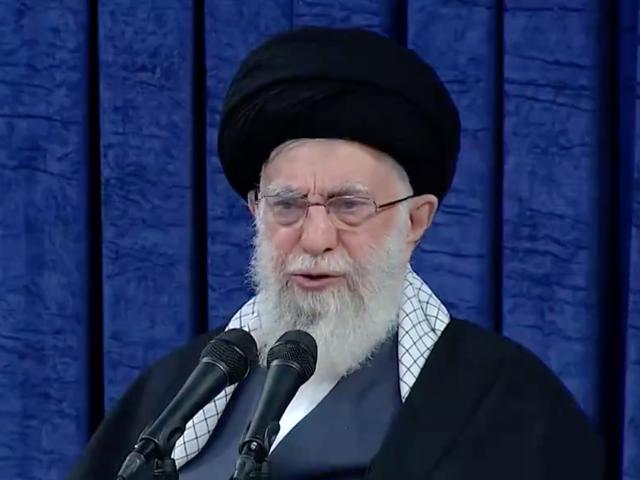In a dramatic escalation of tensions, Tehran has launched a direct assault on Israel with over 300 drones and missiles, marking the first such direct engagement by the Islamic Republic. This aggressive move follows a lengthy period of covert conflicts and propels the longstanding shadow war between the two nations into full view, heightening regional tensions.
The attack occurred on a Saturday night and, according to Iranian officials, serves as a warning that any retaliation from Israel or support from the United States will be met with even more severe responses. The chief of staff of the Iranian armed forces, Maj Gen Mohammad Bagheri, explicitly warned on state television that any Israeli reprisal would provoke a larger-scale military response from Iran. He also cautioned that U.S. backing of Israel could lead to direct threats against American bases in the region.
War cabinet meeting at 15:30 to discuss response vs. Iran, @N12News reports. Israel will aim to hit hard but align retaliation with US & western partners to avoid large-scale conflict.
— Israel Radar (@IsraelRadar_com) April 14, 2024
Options include strikes or covert ops targeting Iranian bases or defense industry, significant…
Despite the severity of the assault, Israel, with support from its Western allies including the United States, the United Kingdom, and regional partner Jordan, successfully intercepted 99% of the incoming projectiles. The attack included not just drones but also ballistic missiles, some of which caused minor damage to the Nevatim airbase in southern Israel, though it remained operational.
The United Nations Security Council convened an emergency session as the situation escalated, with more than 350 missiles reportedly launched by Iran and its allies from multiple locations, including Lebanon, Syria, and Yemen. The Israel Defense Forces (IDF) touted their high interception rate as a strategic victory, emphasizing the effectiveness of their missile defense systems.
Axio: Biden to Bibi: “The US will oppose any retaliation attack by Israel on Iran and will have no part in it.”
— Raylan Givens (@JewishWarrior13) April 14, 2024
In the wake of the attack, Israeli Prime Minister Benjamin Netanyahu took to social media to express his confidence in Israel's defensive capabilities, stating, "We intercepted, we repelled, together we shall win." Meanwhile, R Adm Daniel Hagari, an Israeli military spokesperson, announced on television that the Iranian offensive had been "foiled," highlighting that no drones or cruise missiles had breached Israeli airspace and only a limited number of ballistic missiles had impacted Israeli territory.
Despite the initial success in intercepting the attack, Israeli airspace remained a zone of conflict. Even as Israel moved to reopen its airspace, the government indicated that the situation was far from resolved, and discussions regarding a potential response were ongoing. Notably, Israeli warplanes were reported to have conducted strikes on Hezbollah positions in southern Lebanon in the aftermath.
I think that’s a misreading of the situation. Iran is emboldened and not deterred every time it feels it can attack, whether it is attacking US forces or hijacking ships or attacking Saudi Arabia or having its militias attack Israel, and the U.S. and other countries, such as…
— Seth Frantzman (@sfrantzman) April 14, 2024
On another front, the situation in Gaza remained tense as Netanyahu declared that Hamas had rejected a ceasefire proposal, prompting Israel to continue its military operations there with "full force."
Netanyahu also communicated directly with U.S. President Joe Biden, discussing the ongoing situation for 25 minutes. Following their conversation, President Biden publicly reaffirmed America’s unwavering support for Israel's security and praised Israel’s defensive response to the attacks. He promised a coordinated diplomatic effort with G7 leaders to address Iran's actions, which he described as brazen.
On October 7, Iran launched a war against Israel via its proxies.
— Israel War Room (@IsraelWarRoom) April 14, 2024
On April 1, Israel struck a building in Damascus being used by IRGC terrorists, including Mohammad Reza Zahedi, an IRGC Quds Force commander who played a direct role in planning and executing the Oct 7 massacre.… pic.twitter.com/OLdZMOYhhk
This complex and rapidly evolving situation underscores the fragile stability in the region and the potential for further escalation into a broader conflict, affecting not just the immediate participants but also drawing in global powers and impacting international peace and security.


